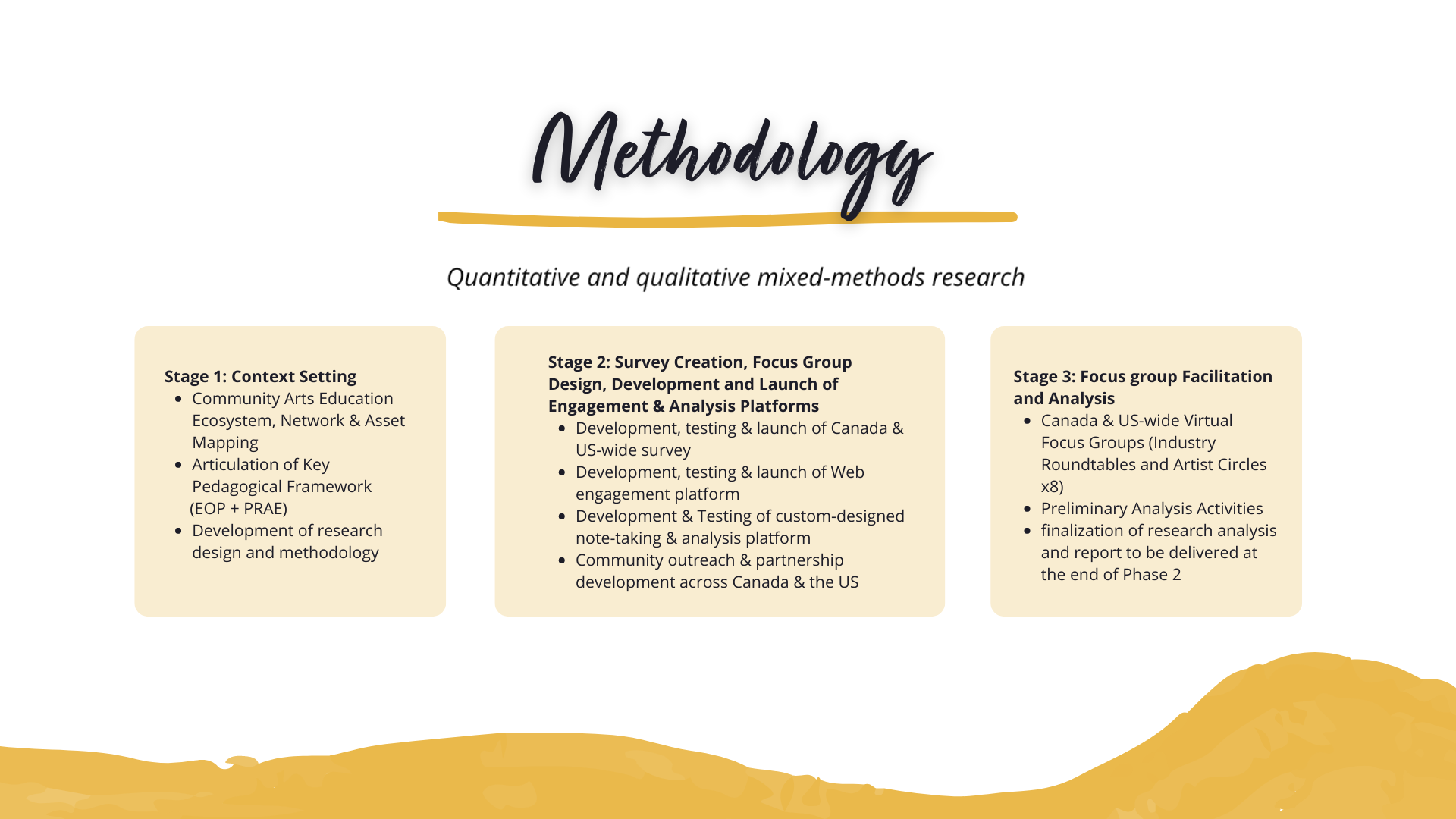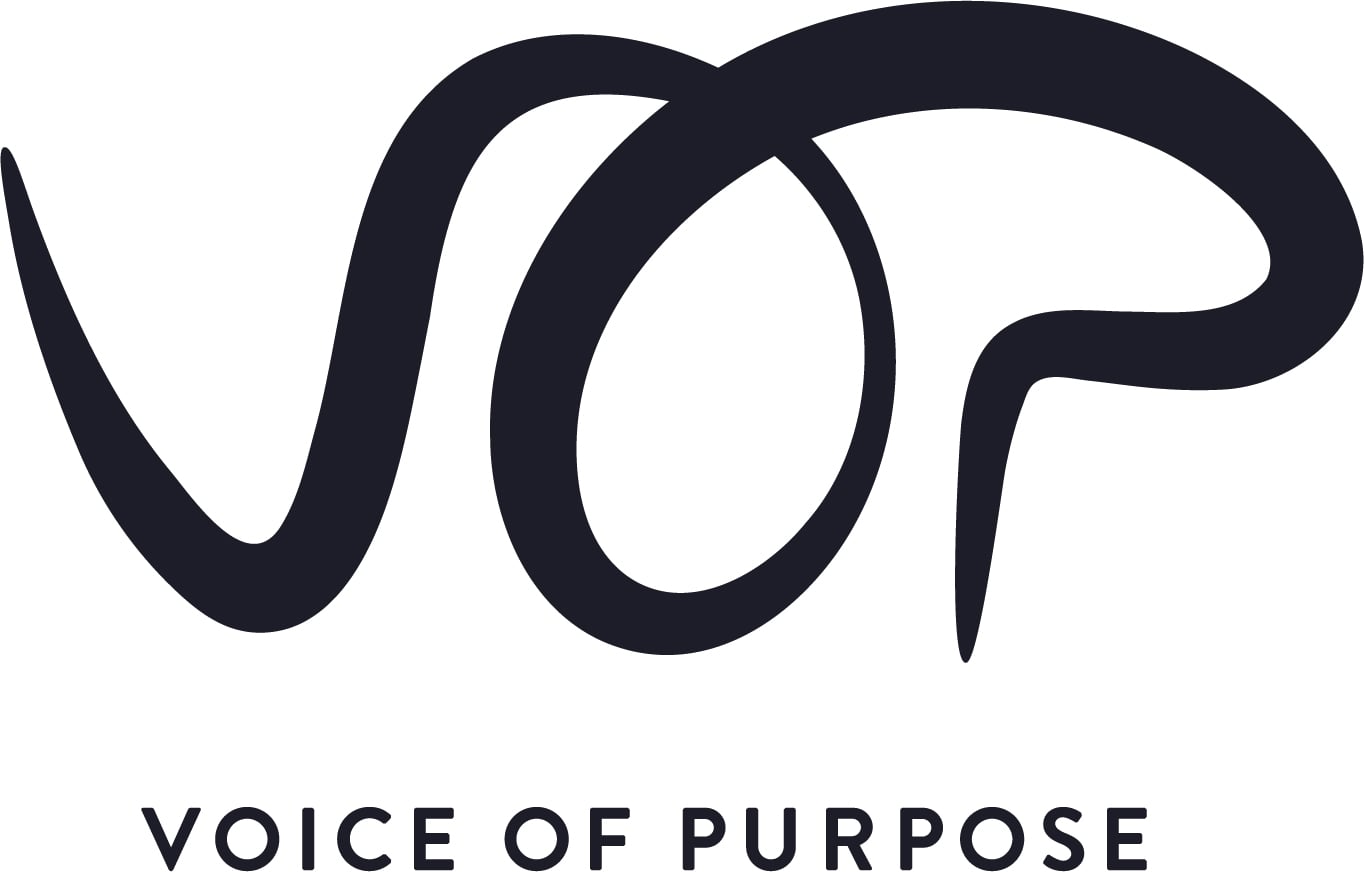During our March 2022 Catalyst Voices gathering, we took a co-dive into our Engaging Artists in Digital Learning Environments (EADLE) Research. During this session we presented our Key Findings of Phase 1 of our research initiative. Let’s re-enter that container now, as we reflect together on our key findings and take-aways from our time together.
Of the many important details discussed, some crucial branches of information were shared including our research design and objectives, methodology and qualitative data summary.
Birthed through our mission of igniting a movement of artist-educators and arts organizations to embody their purpose to deepen their impact, the EADLE research initiative addresses the complex and at times inaccessible nature of a reality that is more and more digitized.
Within the context of arts education, we centered our research around the question: What does it require to attract and retain the engagement of artists in a digital learning environment?
Considering holistic and inclusive based perspectives, we arrived at a few research objectives which included:
- Addressing the need for digital literacy and building capacity for identifying effective digital solutions, to support interventions for issues caused by systemic barriers within community arts and
- Creating intentional space to spotlight BIPOC voices and experiences, to embody equity and inclusion; aiming to interweave this value throughout
The Elements of Purpose is our guiding pedagogy for the research, which encourages us to string together the personal and the systemic in order to engage in an integration process in order to create change in the world. We aim to recognize and activate the link between embodiment of purpose, and realizing one’s agency through this integration, in order to become a creator of change.
In preparation for the community-facing work, we grounded in this framework:
- Personal: Striving towards centering identity and authenticity
- Systemic: Equity and inclusion = guiding principles
- Integration: Considering the harm that exists within the personal and systemic, healing and wellbeing becomes necessary and central pillars to creating social change
- Creation: Thinking of creativity and technique, including how we are building these systems and integrity around these systems
It was important for us to have a deep foundational understanding of our shared intentions before inviting community to engage with the research, as we were rooted in the theory of change which states that the deepening of social impact for initiatives (within the community arts sector) requires a transformative approach.
Here is our methodology:
- Stage 1 = context setting, designing approach, creation of framework
- Stage 2 = develop and tested web engagement platform, surveys, note-taking analysis platform, developed partnerships across Canada and US
- Stage 3 = facilitated 8 focus groups (industry roundtables and artist circles) virtually across Canada and USA, did preliminary analysis + final research analysis and a report to be delivered at the end of phase 2
And here are the phases, for context:
- Phase 1: General scan knowledge of arts education sector
- Phase 2: Specialized knowledge (case studies by art form/age group)
- Phase 3: Provide value back to community arts sector based on learnings
Our participants included: 27 artist learners, 91 artist educators + arts administrators, 12 arts funders. We held 8 focus groups, with a total of 57 participants across 9 provinces and 15 states. Discussions were centered around holistic and inclusion-based perspectives of how to attract, maintain and deepen engagement with historically marginalized groups within community arts.
Our qualitative data summary, based on these discussions led us to these findings:
- Digital learning is both limiting and beneficial
- Access to Resources: Some had increased access and opportunities to engage online, and some may not have consistent access to internet/ reliable signal + financial barriers
- “Decolonization is expensive” – Creating healthy systems of models of leadership while acknowledging that true decolonization is costly and holistic – Requires a lot of time, resources, capacity and humility
- Words vs actions re: equity and inclusion: Saying vs doing and acknowledging that language has advanced beyond actions for a lot of people; Community arts sector lacks tools for implementing equity, inclusion and decolonization
- Relationships laying the foundation for meaningful engagement; authenticity is the key that unlocks trust – there is no substitute for authenticity
- Support Systems and healing: Exhaustion intervention and care as necessary for everyone
- Collaboration and co-creation: Dismantling isolating silos, encouraging more collaborations and creation of spaces to cross-collab

